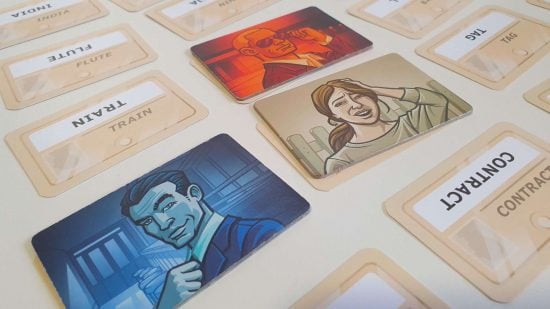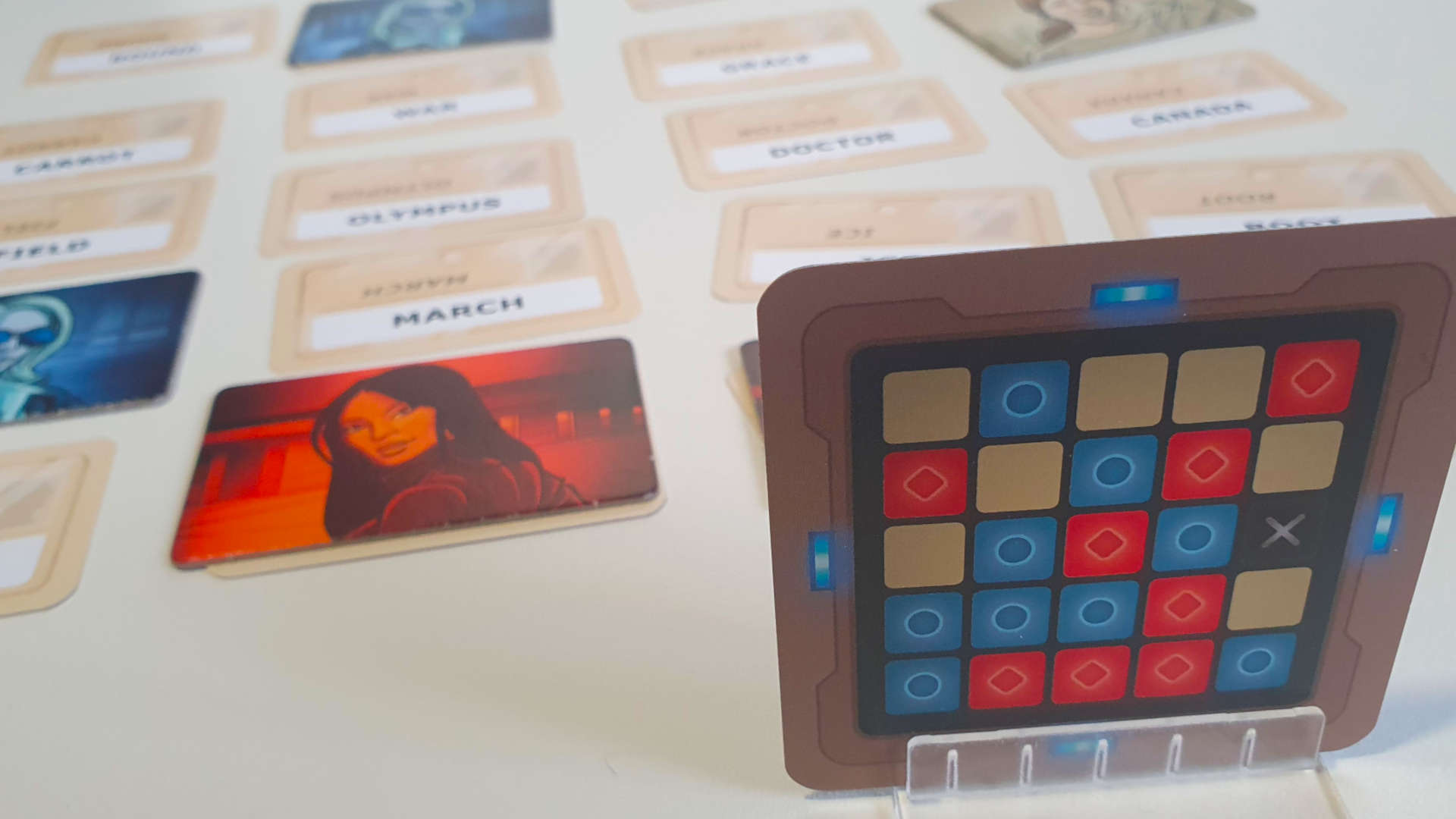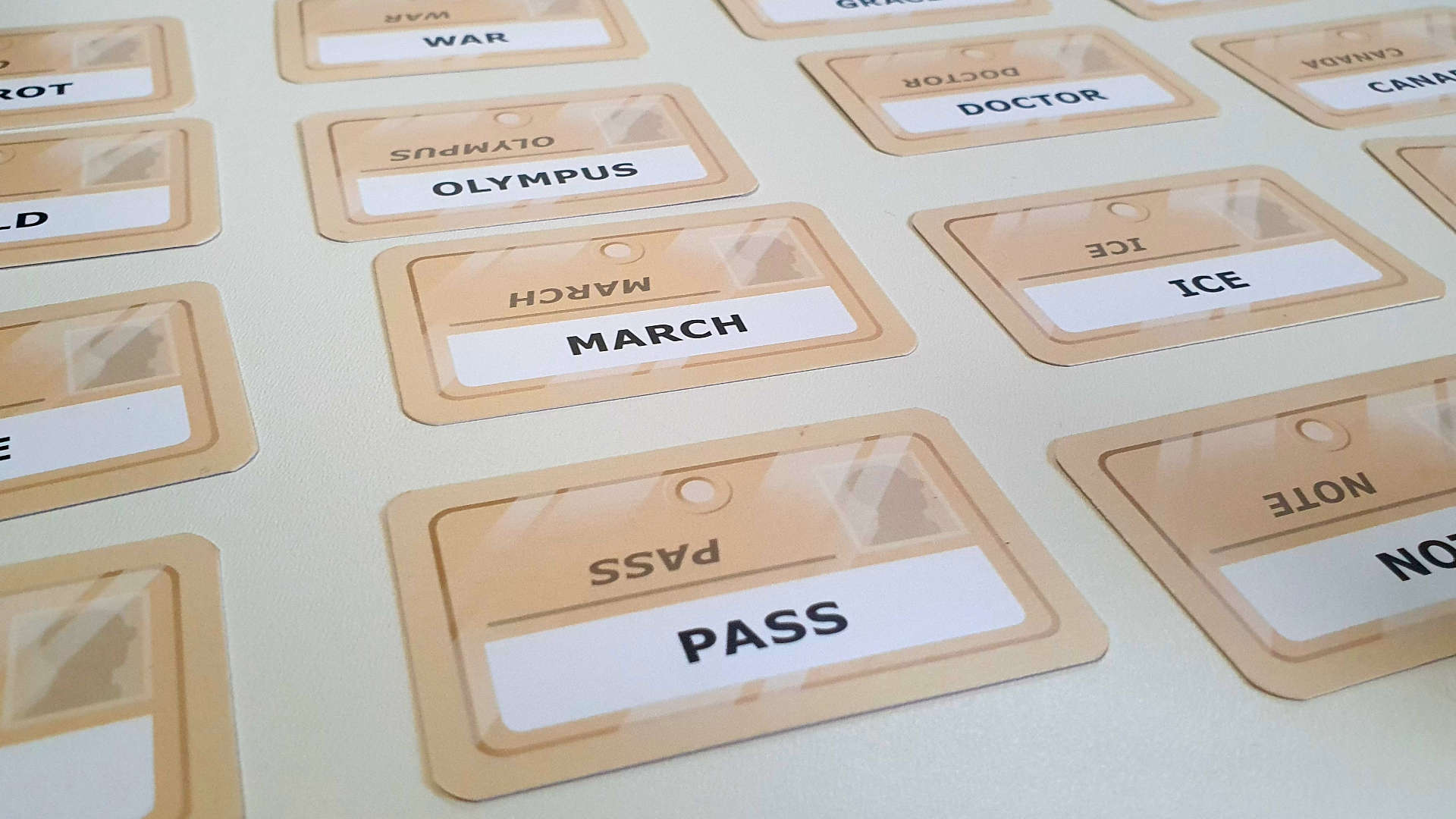Our Verdict
Codenames delivers laughs for big groups, and alternately leaves you feeling like a genius and the dumbest person in the room. Occasional bad luck will produce a game that's a bit slow and clunky, but not often enough to spoil this gem.
Released in the giddy before-times of 2015, Codenames is a smash-hit party game, designed by the endlessly inventive Vlaada Chvátil and pubilshed by Czech Games Edition. Codenames is undeniably popular, attracting sequels and a two-player spin-off, but the market for party games – games you can easily play with a big group of just about anybody with very little setup – is a packed one. We thought it was high time to bring this spy-themed word-puzzler in for an interrogation.
You’ll assemble a five by five grid of perfectly innocent words from a big old deck of word cards. One player from each team will take on the role of spymaster. The spymasters huddle together on one side of the board, and draw a keycard that highlights different locations on the grid in blue and red. The spymasters from each team now know the ‘codenames’ that their teammates have to guess.
The spymasters take it in turns giving rudimentary clues – they can say one word that isn’t in the grid, plus a number which indicates how many codenames the clue is relevant to. Then it’s over to their teammates to try and decode their message and pick the right words.
Once the team loses confidence in picking more words, picks a neutral codename, or picks one of the opposing team’s codenames, the turn passes over. Hidden on the grid key is the dreaded “assassin” – pick their codename by mistake and it’s game over for your team. Otherwise, first team to pick all their codenames wins. Simple!
An ideal turn for the spymaster starts when they say something like: “Aquatic, three”, and their team correctly guessing Loch Ness, fish, and horseshoe – that last one being a clever reference to the horseshoe crab, nature’s perfect creation.
A more likely turn for the spymaster starts by confidently asserting: “Bird, three”, only to realise with horror that they didn’t consider the avian meaning of the word ‘bill’, that ‘bill’ is the assassin codename this round, and that their teammates have totally dismissed their actual third pick, ‘Phoenix’, and are honing in on the word ‘bill’ with the self-assurance of a cat about to fall in a bathtub.
The anguish of miscommunication, or the thrill of passing over a perfect clue, is what makes Codenames fun. That’s enough to pass all the key tests for a party game – you can play it with big groups, you can play it with your family who know bugger all about board games, you can play it with kids, you can play it halfway sozzled, and you can use perfectly innocent words to say absolutely filthy things in a deniable way.
Who you play it with does change the tone and tempo of the game. Playing with your partner on your team will open a line of communication based around obscure in-jokes no-one else has a chance to decipher. Play it with strangers and prepare to discover how close, or distant, your understanding of the world is.
Problems? Well, it’s weirdly hard to convey to non-gamers the exact limits around the kinds of clues you can or can’t give – the rules are fine and sensible, but you might have to start a game with a few corrections to avoid the whole group playing in a way that turns out not to be much fun. That hurts it a little if you’re still at the “no trust me board games can be fun!” stage of introducing games to your friends or family.
The game can also start to grind if the word grid, or the brains of the spymasters, refuse to cooperate. A clue for a single codename is less likely to provoke discussion or go drastically wrong than a clue that ends in a hearty “two” or an audacious “three”. I smith words for a living, so this might be personal pride talking – seeing a word grid and not being able to identify a single clue that links two or more words together feels like professional incompetence on my part. Saner humans might just not like the frustrating feeling of not being able to find a clue.
All told though, this is still one of the best party games out there, and more than earns its slot on our list of the best board games. We can also recommend plenty of funny board games and funny card games if you want something on the sillier side to lighten up your next soiree.


